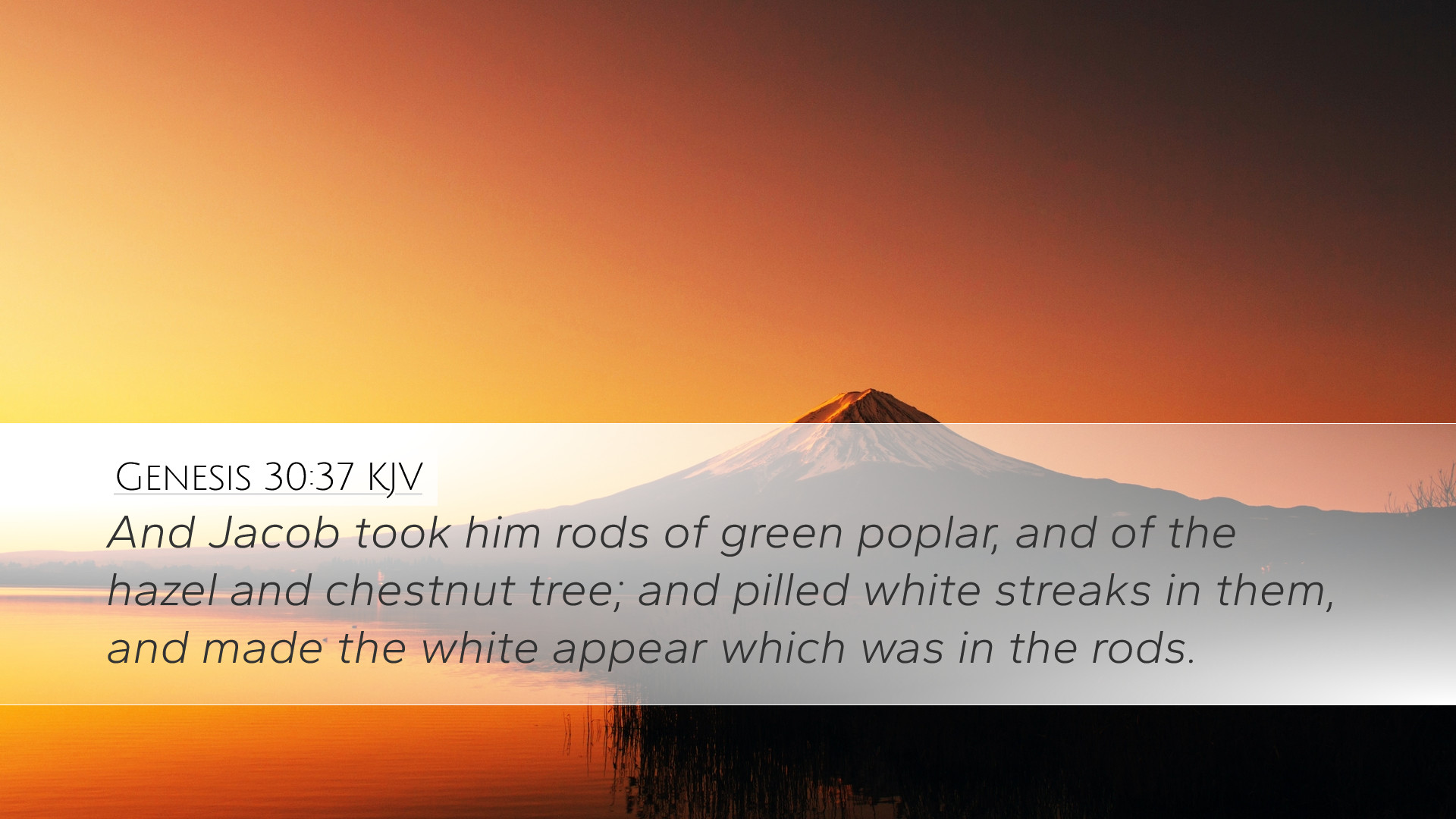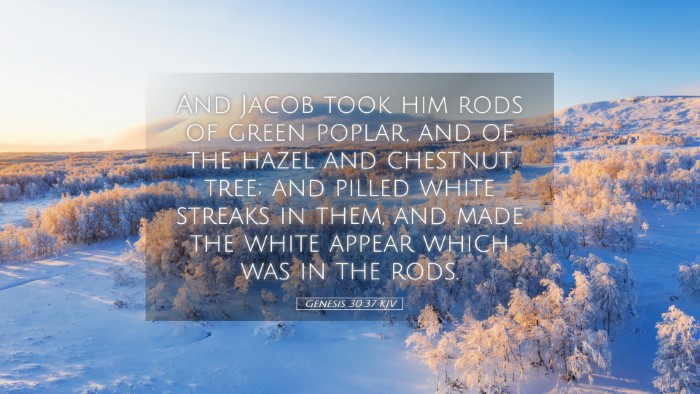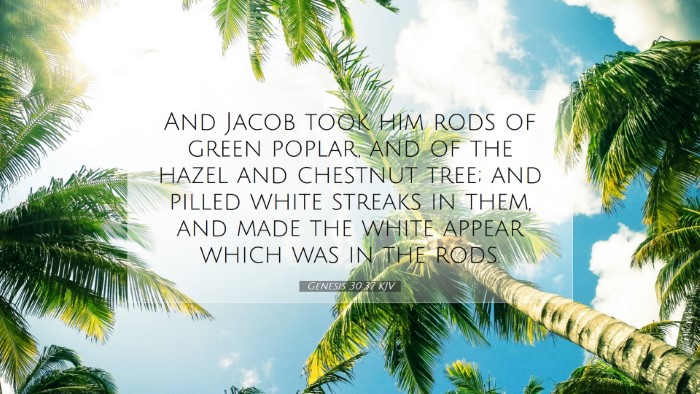Commentary on Genesis 30:37
Verse Reference: Genesis 30:37 - "And Jacob took him rods of green poplar, and of the hazel and chesnut tree; and pilled white strakes in them, and made the white appear which was in the rods."
Introduction
The account of Jacob's dealings with Laban in Genesis 30 is a remarkable narrative that illustrates the themes of labor, providence, and the complex interaction of human initiative and divine sovereignty. Genesis 30:37 specifically highlights the method Jacob used to influence the breeding patterns of the flocks. This commentary draws from classical biblical scholars to elucidate the significance of this verse.
The Context of Genesis 30
Before analyzing the specifics of verse 37, it is crucial to understand the broader context. Jacob, having served Laban for many years, seeks to establish his own wealth and legacy. After the birth of his children, he approaches Laban with a plan to separate his flocks from Laban’s, illustrating a transitional phase in Jacob's life.
Socio-Economic Implications
The breeding of livestock was vital in ancient Near Eastern society. Therefore, Jacob's strategy was not merely about wealth accumulation; it was also about securing a future for his family and fulfilling God's promises. The manipulation of breeding practices reflects not only the agricultural knowledge of the time but also the cultural expectations placed upon patriarchs like Jacob.
Analysis of Jacob's Method
Symbolism of the Materials Used
Green Poplar, Hazel, and Chestnut: Jacob's selection of these specific trees symbolizes vitality and fertility. Especially, the poplar tree is known for its rapid growth, which could serve as an allegory for the swift increase Jacob desires in his flock. Albert Barnes notes that "the choice of wood for the rods seems to suggest that Jacob desired to evoke a natural response from the animals, paralleling the hopes he held for his own descendants."
The Act of 'Pilling' the Rods
The act of pilling the rods involved peeling sections of bark. Matthew Henry suggests that this act was not only practical but served as a visual stimulus intended to influence the conception of the animals. By exposing the white streaks, Jacob aimed to connect the visual impact with the breeding process, inducing the desired outcome.
Faith and Action
Adam Clarke emphasizes that while Jacob's approach seems to intertwine superstition and practical wisdom, it also exemplifies a significant principle: the necessity of both faith and works. Jacob was not passively waiting for God's providence; instead, he actively engaged in the means available to him. This duality is essential for understanding the biblical portrayal of God's providence.
Divine Providence and Human Initiative
Jacob's actions raise questions about the interplay of divine sovereignty and human free will. While Jacob employs methods that appear strategic, the subsequent outcome illustrates that God ultimately guided the increase of Jacob’s possessions. This reflects a broader theological theme throughout Scripture where human effort is woven into the fabric of divine plan.
Theological Reflections
God's Sovereignty
This verse, while detailing Jacob’s strategies, also serves as a reminder of God’s overarching control over creation. God's purposes cannot be thwarted by human strategies. Both Matthew Henry and Albert Barnes stress that although Jacob's approach included elements of cunning, God was still intimately involved in the circumstances surrounding Jacob's success.
Lessons for Modern Believers
For contemporary Christians, Jacob's experience encourages an active faith. We are called to engage with the world around us and apply wisdom in our endeavors, all while trusting in God's providential care. It illustrates the balance between relying on God and taking initiative in the affairs of life.
- Prayer and Planning: Just as Jacob combined prayer for God’s blessing with diligent planning, so too should we approach our callings.
- Understanding Providence: Recognizing God’s hand in our lives helps us to see beyond the immediate and to understand the larger narrative God is weaving.
- Faithful Stewardship: Jacob’s desire for flocks reflects our responsibility to be stewards of what God has entrusted to us, whether that be our resources, relationships, or opportunities.
Conclusion
Genesis 30:37 serves as a profound reminder of the interplay between divine sovereignty and human agency. It prompts believers to take meaningful action while trusting in God's ultimate control over outcomes. Scholars and theologians alike can find rich theological principles in this narrative, illustrating the necessity of faith married to diligent action. As pastors and students explore these themes, may this verse inspire a deeper understanding of God's providence in their lives and ministries.


